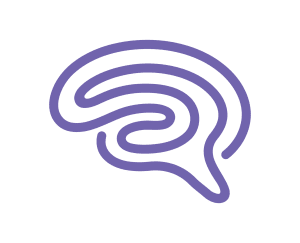
Originality.ai provides tools to assess whether text may be AI generated, check for plagiarism, and assist with fact review and readability. Teams scan drafts, see highlighted spans, and export results. APIs support large scale screening and dashboards summarize status across projects. Used with policy and human judgment, it helps publishers and educators manage risk while avoiding overreach that would penalize legitimate voices or quotations. Batch scans summarize scores by project and owner for oversight at scale.
Estimate the probability that a passage was generated by AI. Thresholds categorize outcomes for triage. Highlights and notes support follow up. While not definitive, these signals help reviewers focus on risk and pair results with context and appeals. Over time, teams calibrate settings to their use cases, reducing false alarms and catching clear misuse faster. Highlights explain which spans influenced results to inform fair discussion.
Compare text against sources on the web and known databases. Flag close matches and paraphrased passages for review. Export citations where available. With systematic scanning, editors and instructors evaluate originality with evidence, avoid duplicate publication, and guide contributors toward cleaner attribution practices that respect authorship throughout. API endpoints return IDs and metadata suitable for audit logs and exports.
Surface claims that may need verification and link to potential references for review. Readability analysis suggests grade ranges and structural improvements. These tools encourage clear writing and support editorial standards, ensuring drafts are both accurate and approachable for audiences while speeding coaching cycles for new or external contributors. Role controls separate reviewers from contributors to prevent conflicts now.
Upload many files or connect the API to process at scale. Organize work by project and owner. Dashboards summarize outcomes, trends, and items that need manual checks. With shared views and exports, organizations coordinate oversight, assign follow ups, and document decisions, turning case by case judgments into consistent, auditable workflows. Release notes document model changes so thresholds can be tuned responsibly.
Use endpoints to submit text and retrieve results with identifiers suitable for audits. Control access with roles and keys. Track releases and adjust thresholds. By combining interfaces with governance, the platform fits into existing pipelines and policy, keeping automation transparent and reinforcing accountability rather than obscuring critical decisions. Readability checks suggest grade ranges and structure improvements clearly.


Publishers, educators, marketplaces, and community managers screening submissions; content teams monitoring drafts; and organizations that want detection, plagiarism checks, fact assist, and readability in one place, with projects, audit friendly exports, and APIs that integrate into LMS, CMS, and intake workflows while keeping room for human judgment and appeals. Plagiarism search compares web and sources to flag matches for review work.
Manual reviews alone miss scale and create inconsistent decisions. Originality.ai adds detection, plagiarism scanning, fact assist, and readability with batch runs and APIs. Teams triage fairly, document outcomes, and coach contributors. The process becomes more reliable and transparent, discouraging misuse while protecting legitimate writing across programs and channels. Fact assist links claims to references so editors can verify statements fast.
Visit their website to learn more about our product.


Grammarly is an AI-powered writing assistant that helps improve grammar, spelling, punctuation, and style in text.

Notion is an all-in-one workspace and AI-powered note-taking app that helps users create, manage, and collaborate on various types of content.
0 Opinions & Reviews